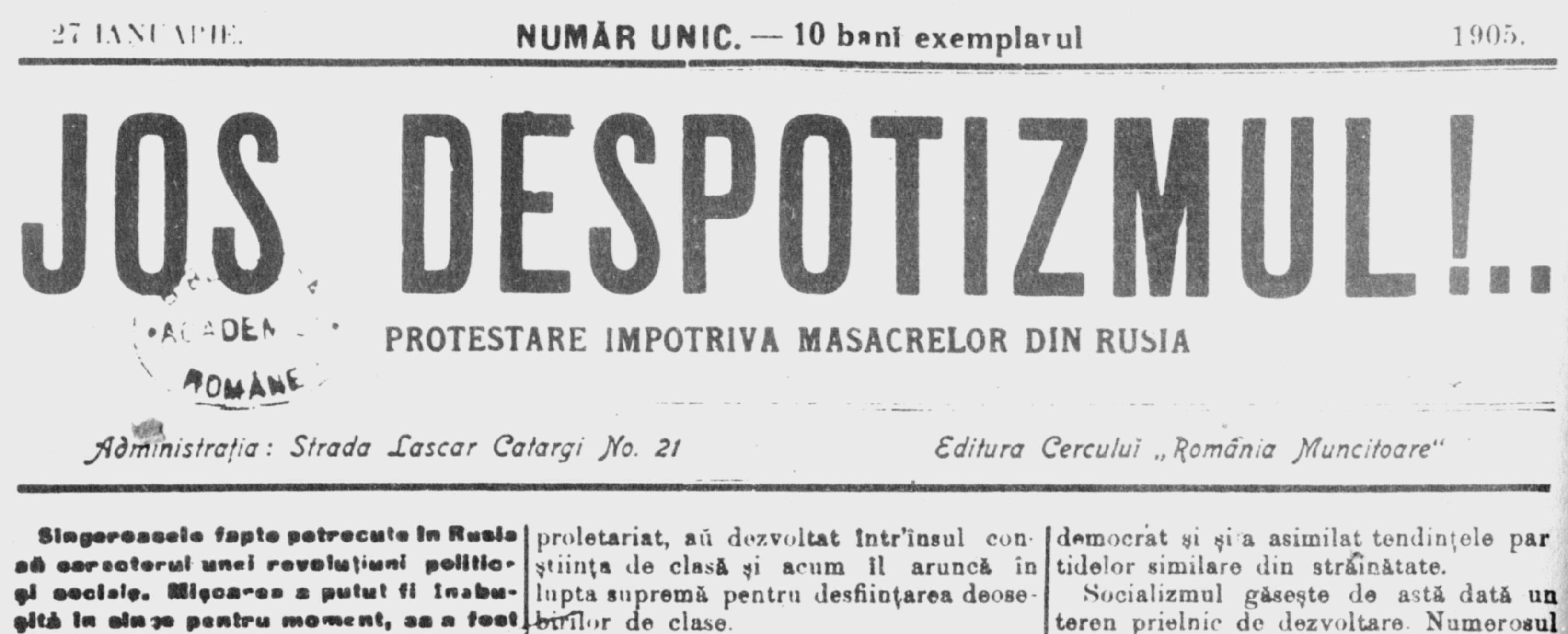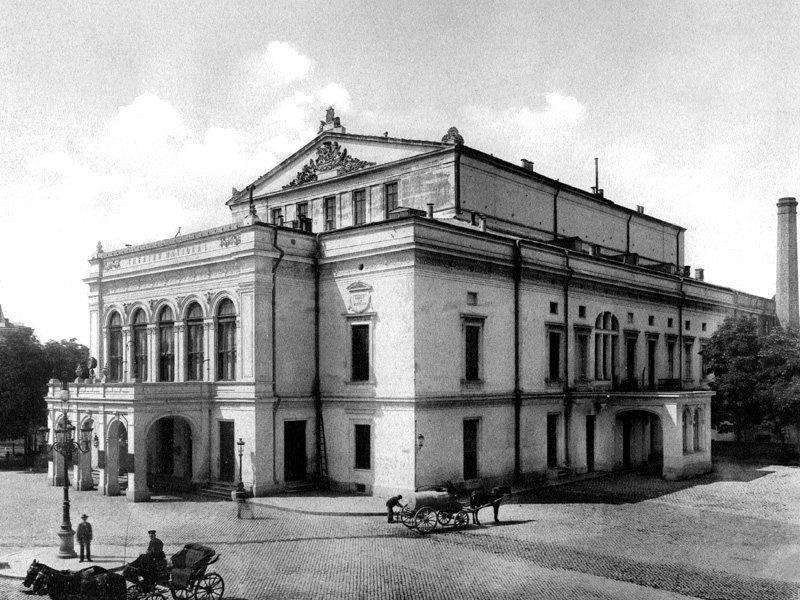|
Socialist Party Of Romania
The Socialist Party of Romania ( ro, Partidul Socialist din România, commonly known as ''Partidul Socialist'', PS) was a Romanian socialist political party, created on December 11, 1918 by members of the Social Democratic Party of Romania (PSDR), after the latter emerged from clandestinity. Through its PSDR legacy, the PS maintained a close connection with the local labor movement and was symbolically linked to the first local socialist group, the Romanian Social-Democratic Workers' Party. Its creation coincided with the establishment of Greater Romania in the wake of World War I; after May 1919, it began a process of fusion with the social democratic groups of in the former territories of Austria-Hungary — the Social Democratic Parties of Transylvania, Banat and Bukovina. The parties adopted a common platform in October 1920. Progressively influenced by Leninism, the PS became divided between a maximalist majority supporting Bolshevik guidelines and a reformist-minded min ... [...More Info...] [...Related Items...] OR: [Wikipedia] [Google] [Baidu] |
Romanian Communist Party
The Romanian Communist Party ( ro, Partidul Comunist Român, , PCR) was a communist party in Romania. The successor to the pro-Bolshevik wing of the Socialist Party of Romania, it gave ideological endorsement to a communist revolution that would replace the social system of the Kingdom of Romania. After being outlawed in 1924, the PCR remained a minor and illegal grouping for much of the interwar period and submitted to direct Comintern control. During the 1920s and the 1930s, most of its activists were imprisoned or took refuge in the Soviet Union, which led to the creation of competing factions that at times came in open conflict. That did not prevent the party from participating in the political life of the country through various front organizations, most notably the Peasant Workers' Bloc. During the mid 1930s, as a result of the purges against the Iron Guard, the party was on the road to achieving power, but this was crushed by the dictatorship of king Carol II. In the perio ... [...More Info...] [...Related Items...] OR: [Wikipedia] [Google] [Baidu] |
Maximum Programme
In Marxist practice, a maximum programme consists of a series of demands aiming to achieve socialism. The concept of a maximum programme comes from the 1891 Erfurt Programme of the German SPD, later mirrored by much of the Socialist International of 1889–1916. The maximalist line is contrasted with a minimum programme of immediate social demands. In the short term, Marxist parties were to pursue only the minimum programme of achievable demands, which would improve the lives of workers until the inevitable collapse of capitalism. "Minimalist" groups believed that the achievement of a minimum programme would enable them to become mass parties and pursue the maximum programme. The Communist International (Comintern) of 1919–1943 initially developed the alternative idea of transitional slogans, seeing the minimum/maximum division as leaving social democratic parties always campaigning only for their minimum programme and not clearly planning a route to achieve their maximum prog ... [...More Info...] [...Related Items...] OR: [Wikipedia] [Google] [Baidu] |
Imperialism
Imperialism is the state policy, practice, or advocacy of extending power and dominion, especially by direct territorial acquisition or by gaining political and economic control of other areas, often through employing hard power (economic and military power), but also soft power ( cultural and diplomatic power). While related to the concepts of colonialism and empire, imperialism is a distinct concept that can apply to other forms of expansion and many forms of government. Etymology and usage The word ''imperialism'' originated from the Latin word ''imperium'', which means supreme power, "sovereignty", or simply "rule". It first became common in the current sense in Great Britain during the 1870s, when it was used with a negative connotation. Hannah Arendt and Joseph Schumpeter defined imperialism as expansion for the sake of expansion. Previously, the term had been used to describe what was perceived as Napoleon III's attempts at obtaining political support through f ... [...More Info...] [...Related Items...] OR: [Wikipedia] [Google] [Baidu] |
Zimmerwald Conference
The Zimmerwald Conference was held in Zimmerwald, Switzerland, from September 5 to 8, 1915. It was the first of three international socialist conferences convened by anti-militarist socialist parties from countries that were originally neutral during World War I. The individuals and organizations participating in this and subsequent conferences held at Kienthal and Stockholm are known jointly as the Zimmerwald movement. The Zimmerwald Conference began the unraveling of the coalition between revolutionary socialists (the so-called Zimmerwald Left) and reformist socialists in the Second International. Background Socialist discussions on war When the Second International, the primary international socialist organization before World War I, was founded in 1889, internationalism was one of its central tenets. "The workers have no Fatherland", Karl Marx and Friedrich Engels had declared in ''The Communist Manifesto''. Paul Lafargue, Marx's son-in-law, in his keynote address at the ... [...More Info...] [...Related Items...] OR: [Wikipedia] [Google] [Baidu] |
Christian Rakovsky
Christian Georgievich Rakovsky (russian: Христиа́н Гео́ргиевич Рако́вский; bg, Кръстьо Георги́ев Рако́вски; – September 11, 1941) was a Bulgarian-born socialist revolutionary, a Bolshevik politician and Soviet diplomat and statesman; he was also noted as a journalist, physician, and essayist. Rakovsky's political career took him throughout the Balkans and into France and Imperial Russia; for part of his life, he was also a Romanian citizen. A lifelong collaborator of Leon Trotsky, he was a prominent activist of the Second International, involved in politics with the Bulgarian Workers' Social Democratic Party, Romanian Social Democratic Party, and the Russian Social Democratic Labour Party. Rakovsky was expelled at different times from various countries as a result of his activities, and, during World War I, became a founding member of the Revolutionary Balkan Social Democratic Labor Federation while helping to organize ... [...More Info...] [...Related Items...] OR: [Wikipedia] [Google] [Baidu] |
Marxism
Marxism is a Left-wing politics, left-wing to Far-left politics, far-left method of socioeconomic analysis that uses a Materialism, materialist interpretation of historical development, better known as historical materialism, to understand Social class, class relations and social conflict and a dialectical perspective to view social transformation. It originates from the works of 19th-century German philosophers Karl Marx and Friedrich Engels. As Marxism has developed over time into various branches and schools of thought, no single, definitive Marxist philosophy, Marxist theory exists. In addition to the schools of thought which emphasize or modify elements of classical Marxism, various Marxian concepts have been incorporated and adapted into a diverse array of Social theory, social theories leading to widely varying conclusions. Alongside Marx's critique of political economy, the defining characteristics of Marxism have often been described using the terms dialectical mater ... [...More Info...] [...Related Items...] OR: [Wikipedia] [Google] [Baidu] |
Trade Union
A trade union (labor union in American English), often simply referred to as a union, is an organization of workers intent on "maintaining or improving the conditions of their employment", ch. I such as attaining better wages and benefits (such as holiday, health care, and retirement), improving working conditions, improving safety standards, establishing complaint procedures, developing rules governing status of employees (rules governing promotions, just-cause conditions for termination) and protecting the integrity of their trade through the increased bargaining power wielded by solidarity among workers. Trade unions typically fund their head office and legal team functions through regularly imposed fees called ''union dues''. The delegate staff of the trade union representation in the workforce are usually made up of workplace volunteers who are often appointed by members in democratic elections. The trade union, through an elected leadership and bargaining committee, ... [...More Info...] [...Related Items...] OR: [Wikipedia] [Google] [Baidu] |
University Square, Bucharest
University Square () is located in downtown Bucharest, near the University of Bucharest. It is served by Universitate metro station. Four statues can be found in the University Square, in front of the university; they depict Ion Heliade Rădulescu (1879), Michael the Brave (1874), Gheorghe Lazăr (1889) and Spiru Haret (1932). The Ion Luca Caragiale Bucharest National Theatre and the Intercontinental Hotel (one of the tallest buildings in Bucharest) are also located near University Square. University Square marks the northeastern boundary of the Old Center of Bucharest. Since the end of 2014, after a project costing up to 65 million euros, the National Theatre has a new face, dominated by futuristic elements. History In the 15th century, here was the northern limit of the city. Around 1700, the limit was already around what is today Piața Romană (Roman Square). Thought to define the axes north–south and east–west of the city after 1880, "the great crossroad" ( ro, ma ... [...More Info...] [...Related Items...] OR: [Wikipedia] [Google] [Baidu] |
National Theatre Bucharest
The National Theatre Bucharest ( ro, Teatrul Naţional "Ion Luca Caragiale" București) is one of the national theatres of Romania, located in the capital city of Bucharest. Founding It was founded as the ''Teatrul cel Mare din București'' ("Grand Theatre of Bucharest") in 1852, its first director being Costache Caragiale. It became a national institution in 1864 by a decree of Prime Minister Mihail Kogălniceanu, and was officially named as the National Theatre in 1875; it is now administered by the Romanian Ministry of Culture. In April 1836, the ''Societatea Filarmonica'' — a cultural society founded by Ion Heliade Rădulescu and Ion Câmpineanu — bought the Câmpinencii Inn to build a National Theatre on the site, and began to collect money and materials for this purpose. In 1840, Obşteasca Adunare (the legislative branch established under the terms of the Imperial Russian-approved ''Organic Statute'') proposed to Alexandru II Ghica, the Prince of Wallachia, a project ... [...More Info...] [...Related Items...] OR: [Wikipedia] [Google] [Baidu] |
Bucharest
Bucharest ( , ; ro, București ) is the capital and largest city of Romania, as well as its cultural, industrial, and financial centre. It is located in the southeast of the country, on the banks of the Dâmbovița River, less than north of the Danube River and the Bulgarian border. Bucharest was first mentioned in documents in 1459. The city became the capital of Romania in 1862 and is the centre of Romanian media, culture, and art. Its architecture is a mix of historical (mostly Eclectic, but also Neoclassical and Art Nouveau), interbellum ( Bauhaus, Art Deco and Romanian Revival architecture), socialist era, and modern. In the period between the two World Wars, the city's elegant architecture and the sophistication of its elite earned Bucharest the nickname of 'Paris of the East' ( ro, Parisul Estului) or 'Little Paris' ( ro, Micul Paris). Although buildings and districts in the historic city centre were heavily damaged or destroyed by war, earthquakes, and even Nic ... [...More Info...] [...Related Items...] OR: [Wikipedia] [Google] [Baidu] |
Romanian Social Democratic Party (1927-1948)
{{disambig Romanian Social Democratic Party may refer to: * Social Democratic Party (Romania), a current Romanian party. * Romanian Social Democratic Party (1990–2001), a former Romanian political party, that formed the Social Democratic Party by fusing with the Party of Social Democracy in Romania in January 2001. * Romanian Social Democratic Party (1927–48) {{disambig Romanian Social Democratic Party may refer to: * Social Democratic Party (Romania), a current Romanian party. * Romanian Social Democratic Party (1990–2001), a former Romanian political party, that formed the Social Democratic Party by ... * Social Democratic Party of Romania (1910–18) ... [...More Info...] [...Related Items...] OR: [Wikipedia] [Google] [Baidu] |





.jpg)
